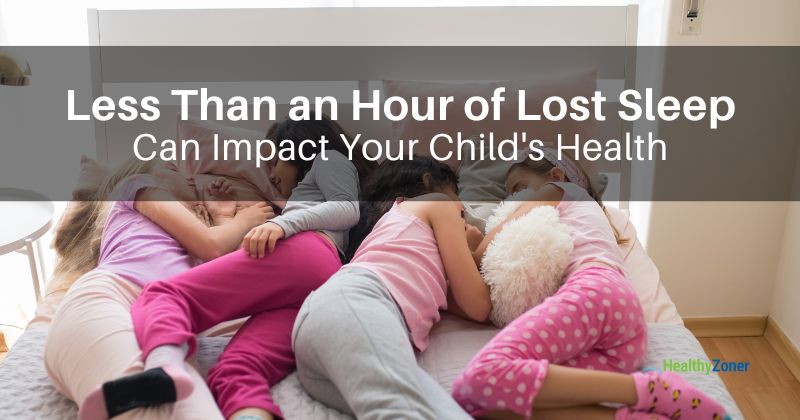Losing even a small amount of sleep can have significant effects on children mental health and well-being, according to a recent study published in the journal Sleep. The study about children’s health found that children who slept just 39 minutes less than their usual amount showed a decline in cognitive performance and attention, as well as an increase in emotional problems and irritability.

The study involved 53 healthy children between the ages of 5 and 7 who were asked to follow their regular sleep routines for one week. Then, they were randomly assigned to either a sleep restriction group or a control group. Children in the sleep restriction group were instructed to go to bed 45 minutes earlier than their usual bedtime, but were woken up 45 minutes earlier in the morning to keep the total amount of sleep the same. Children in the control group continued with their regular sleep routines.
The results showed that children in the sleep restriction group experienced significant declines in cognitive performance and attention, as well as increases in emotional problems and irritability compared to the control group. The study suggests that even minor disruptions to a child’s sleep routine can have negative effects on their health and well-being.
This study highlights the importance of prioritizing healthy sleep habits for children, including consistent bedtimes and wake-up times, limiting screen time before bed, and creating a sleep-conducive environment. Parents and caregivers should also be aware of any signs of sleep problems in children, such as difficulty falling asleep or staying asleep, snoring, or daytime sleepiness, and seek medical attention if necessary. (Source: Healthline.com)
What is the Sleep Deprivation?
Sleep deprivation is a condition that occurs when an individual doesn’t get enough sleep on a regular basis. It can be caused by a variety of factors, such as a demanding work schedule, personal responsibilities, or lifestyle habits. When an individual experiences sleep deprivation, they may feel tired, irritable, and have difficulty focusing or thinking clearly.
Prolonged periods of sleep deprivation can lead to more serious health problems, such as weakened immune system, increased risk of accidents, and depression.
It is recommended that adults aim for 7-9 hours of sleep per night, while children and teenagers require more sleep, typically between 9-11 hours per night.
Common Children Mental Health
Here are some common children’s mental health issues.
- Anxiety: Children with anxiety experience intense fear, worry, and unease, often with no apparent cause. Anxiety can manifest as physical symptoms, such as stomachaches and headaches, and can interfere with daily activities.
- Depression: Depression is a mood disorder characterized by persistent sadness and loss of interest in activities. Children with depression may also experience changes in appetite, sleep disturbances, and feelings of worthlessness or guilt.
- Attention-deficit/hyperactivity disorder (ADHD): ADHD is a neurodevelopmental disorder that affects a child’s ability to focus, control impulses, and regulate behavior. Symptoms of ADHD include hyperactivity, impulsivity, and inattention.
- Autism spectrum disorder (ASD): ASD is a developmental disorder that affects social interaction, communication, and behavior. Children with ASD may have difficulty with verbal and nonverbal communication, social interaction, and repetitive behaviors.
- Obsessive-compulsive disorder (OCD): OCD is a mental health disorder characterized by unwanted, intrusive thoughts or obsessions and repetitive behaviors or compulsions. Children with OCD may feel compelled to perform rituals or routines to reduce anxiety.
- Post-traumatic stress disorder (PTSD): PTSD is a mental health condition that can occur after experiencing or witnessing a traumatic event. Children with PTSD may have flashbacks, nightmares, and intense fear or anxiety related to the traumatic experience.
- Eating disorders: Eating disorders are mental health conditions that affect a child’s relationship with food and body image. Common eating disorders in children include anorexia nervosa, bulimia nervosa, and binge eating disorder.
It is important to note that this is not an exhaustive list, and each child’s mental health concerns may manifest differently. If you have concerns about your child’s mental health, it is recommended to seek guidance from a healthcare professional.


